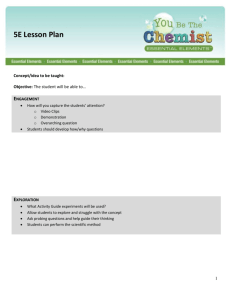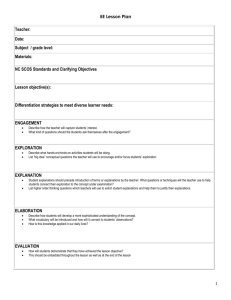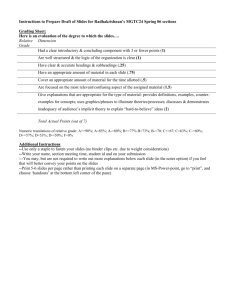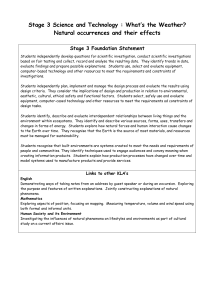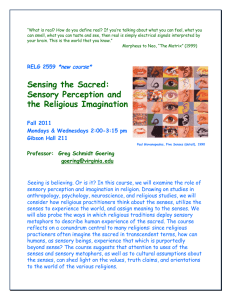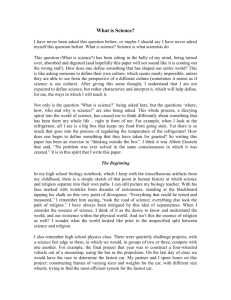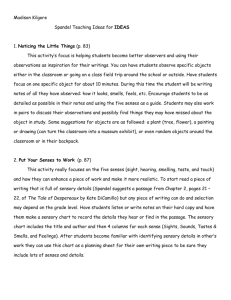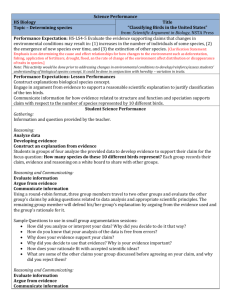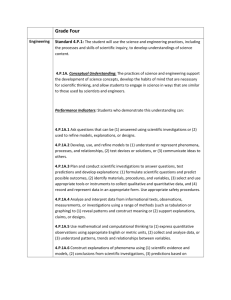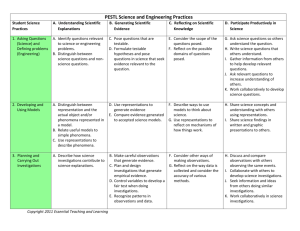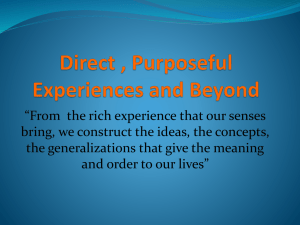Science
advertisement
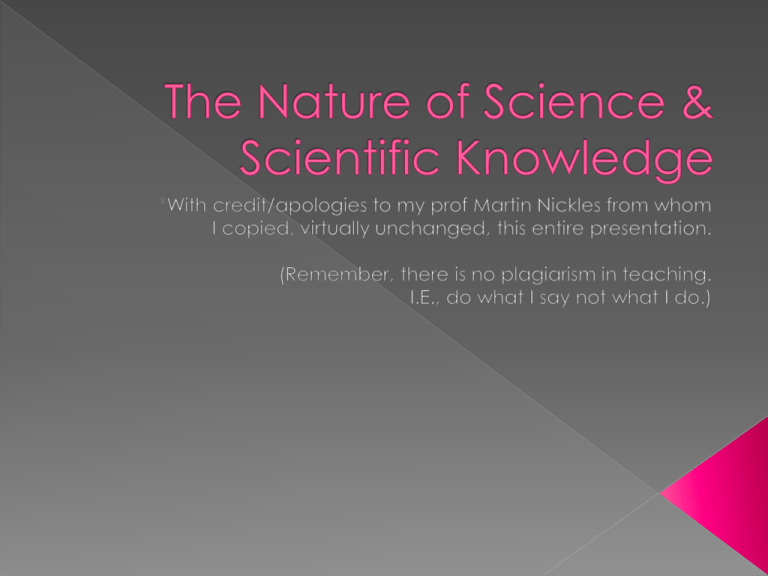
To explain the NATURAL WORLD and how it got to be the way it is. NOT merely to collect “facts” or describe. Natural here means empirically sensible—that which we can detect with our senses and for which there is widespread agreement. * An empirical explanation entails detailed, precise explanations and possesses predictive power. Limited to the natural world Inherently uncertain to varying degrees i.e., it is NOT absolutely, eternally, and infallibly TRUE. This built-in uncertainty is due in part to the following assumptions: The physical universe is real and exists apart from our sensory perception of it. Humans are capable of accurately perceiving the physical universe and understanding how it operates Natural processes are SUFFICIENT to explain or account for natural phenomena and events. Nature operates UNIFORMLY in space and time (see: Lyell) Scientific knowledge, (since it is based on human sensory experience of the natural world) is subject to the BIOLOGICAL LIMITATIONS OF OUR SENSES. › While technology has greatly extended the range of our senses (think of UV and infra-red light etc.) There are still limits to technological accuracy and range. It is impossible to know if we have thought of every possible alternative explanation. It is probably always impossible to control for every possible variable. For two reasons: › 1. Scientific knowledge is evidence-based. Scientific Knowledge (including scientific explanations) is based only on available evidence, rather than on “proof” (which is indisputable and irrefutable). › 2. That evidence must be EVALUATED and INTERPRETED. 2. Scientific knowledge is historical. The history of scientific knowledge is subject to modification in light of new evidence. The questions and problems that scientists regard as interesting and important at any given time are reflective of intellectual, cultural and political considerations that change over time. despite this uncertainty and tentativeness, scientific knowledge (and to a lesser extent, scientific “facts”) constitute the most reliable knowledge we can have about the natural world and how it works. Why? This is because of CRITICAL THINKING Assumptions and current knowledge (even “facts”) are subject to regular review and re-assessment—especially in light of new evidence. Independent duplication of results is ideal. Concordant evidence is sought as support for an explanation. Scientific knowledge is (ideally) available for public knowledge. Expertise in knowledge is highly regarded, but there is no reliance on any absolute authority to determine “the truth.” So, like, any explanation is equally, like, valid—right? And truth is just a matter of opinion, and like, we can’t even say who’s right. In the absence of certainty regarding the absolute truth of scientific explanations, scientists use COMPARATIVE CRITICAL THINKING to determine which explanation is MORE LIKELY TO BE CORRECT. A scientific explanation (which is limited in all the ways we’ve already discussed) is considered better than another the more it… is consistent with known natural processes; accounts for more data; has fewer unexplained exceptions; has more reliable predictive power; accounts for previously unexplained phenomena; is simpler; provides a fertile field for future research. We can see the history of science as a record of our scientific efforts to reduce the degree of uncertainty associated with our knowledge of the natural world. Thus, science can be said to “progress,” but only in the negative sense of eliminating faulty explanations, and increasing our confidence in some specific scientific knowledge, and in science in general.
